Science. You want to write about science because you like the community. You want to write about science because you think it is interesting. You have heard about something scientific on the news and now you want to share your newfound knowledge with the steemstem community. But Stop!! Did you check actual scientific sources? And I am talking about the good stuff, not just Wikipedia. No? Well, maybe I can help you.
Today, I want to show you a few websites and search engines that will help you to find scientific sources. While not all of them will give you exclusively open access content, it will make it significantly easier for you to find reliable, peer-reviewed scientific journal articles. I use these websites for my own research, not just for my stemit posts, but also for my scientific research at my university. Lets get going.
#1 Google Scholar
This is one that you may have heard about. Google Scholar should be your go to because it is easy to use and has an abundance of scientific sources. It works just like a regular Google search, only that you will find scientific sources. Let’s assume that you are looking for a journal article about CRISPR-Cas9, something that is currently very popular science. Just enter “CRISPR Cas9” into the search field and hit enter. Google Scholar will produce the following:
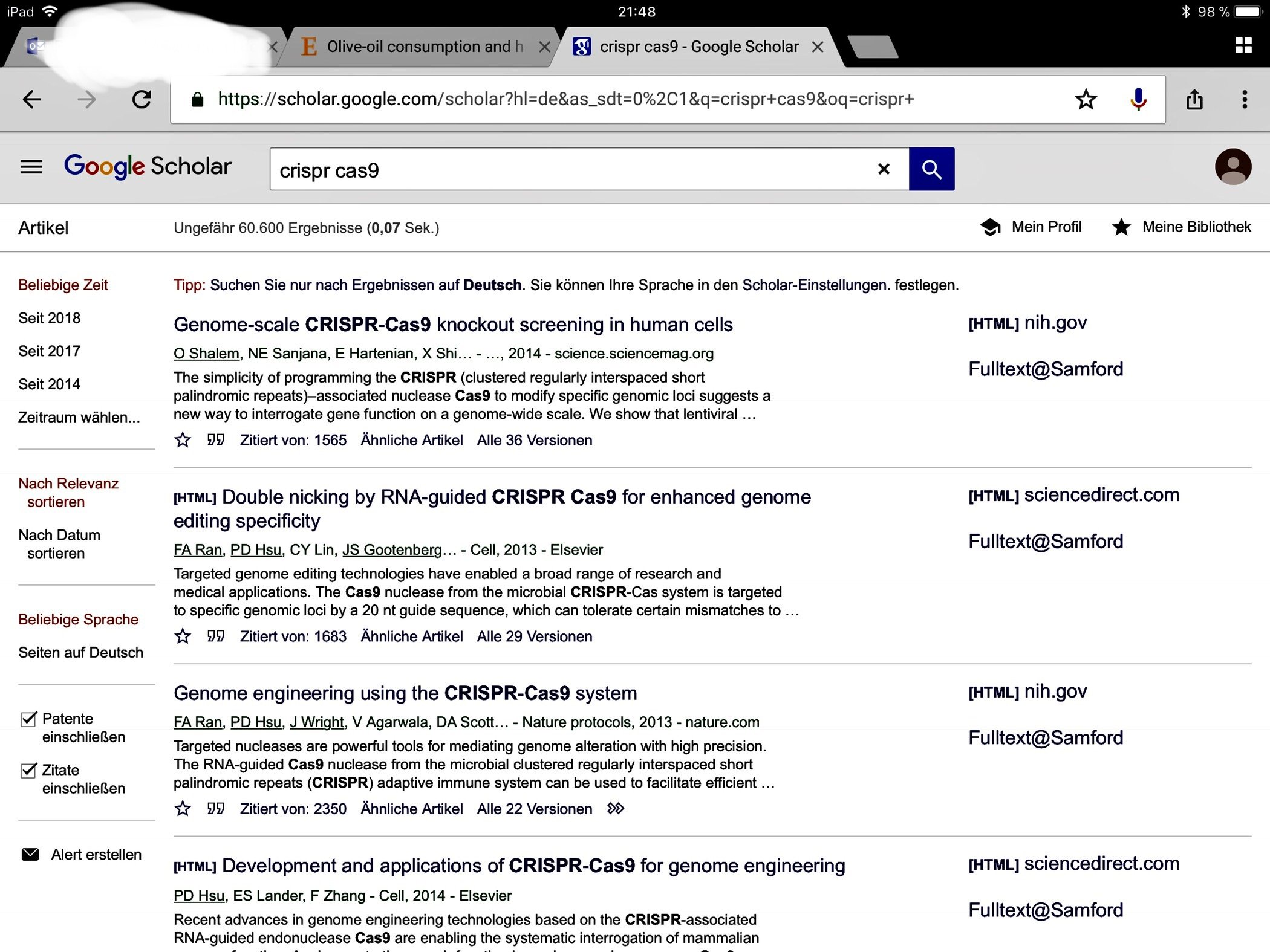
The first four sources are all from known scientific journals and publishers including Nature, Science and Elsevier. If you go down to the fifth source (cannot be seen in the screenshot), you will even find an article from Jennifer Doudna, the inventor of CRISPR Cas9.
I once had a lady tell me that Google Scholar should not be used for more than a high school science report. That lady never been in a science lab - Google Scholar is completely legitimate.
Google scholar is a great tool and it will help you tremendously. It has its limits, though. While the vast majority of search results are reliable, you will sometimes stumble upon some sources that are not that trustworthy. Those include books, most of the time. If you stick to articles published in known journals or by known publishers (Nature, Science, Elsevier, ACS among others) you should be fine. Another limitation is that many of these known publishers do not give out many free articles. You will find many interesting articles that you will not have access to. Here a tip: from my experience, it seems like review articles tend to be free more often than publications based on studies and experiments. Most of the time review articles are what you want. Furthermore, they cross reference articles, and thus are a valuable source for finding sources.
#2 NCBI
Yes, this is a government funded site. That does not change the fact that this data bank is still legitimate. Especially for biology, medicine and health related posts it is a great resource. If you google search NCBI, your first search result should read “National Center For Biotechnology Information”. Click on that and you will go to the NCBI Homepage.
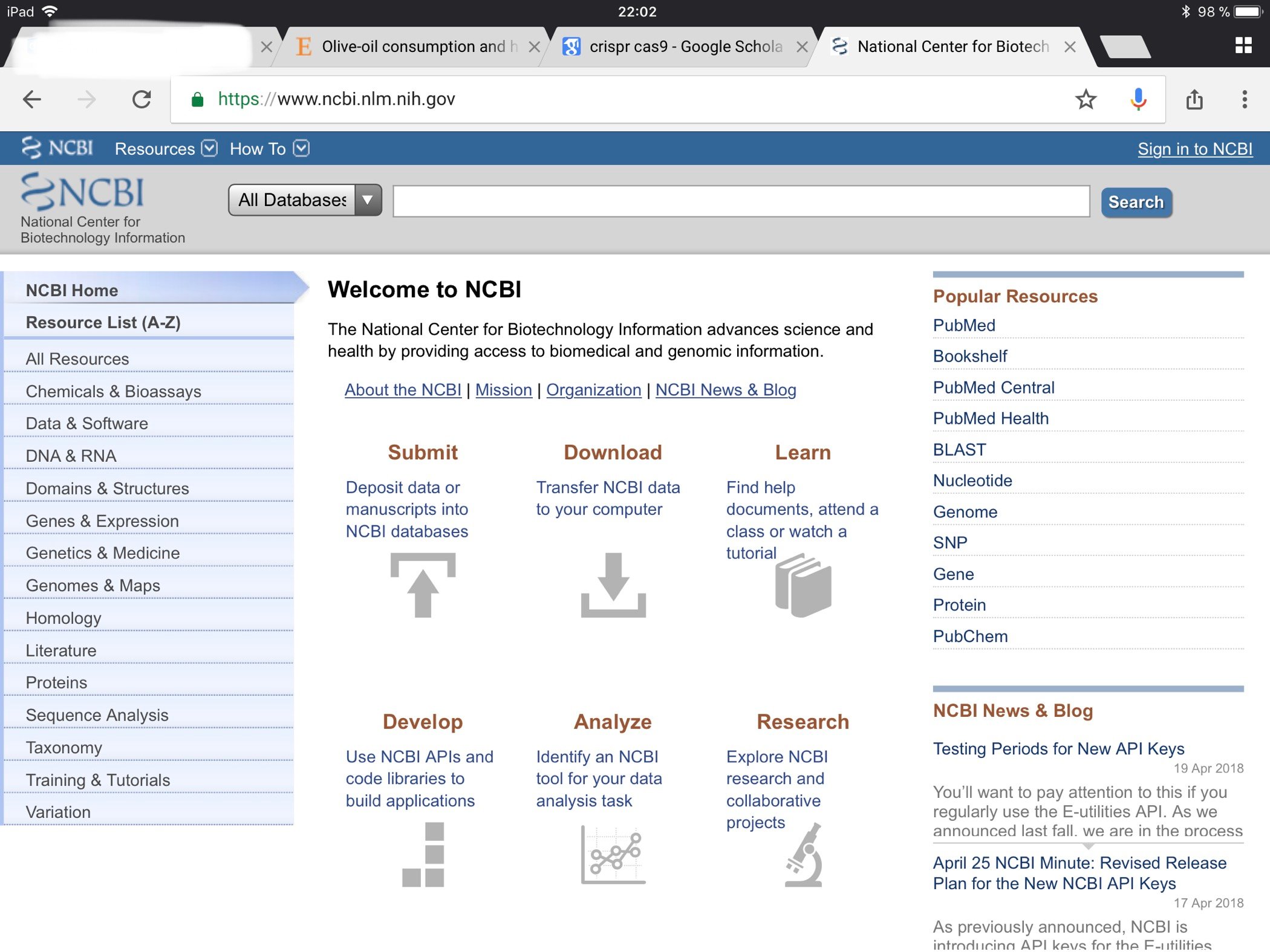
As you can see, there are many resources available to you. You can look up genes, protein primary structures and many other things. The search on top of the page will be most interesting for you. Here you can type in what you are looking for. Let’s say you are interested in baking yeast because you want to know more about how your bread is made. On the left upper page you will find a link titled “PubMed Central”.
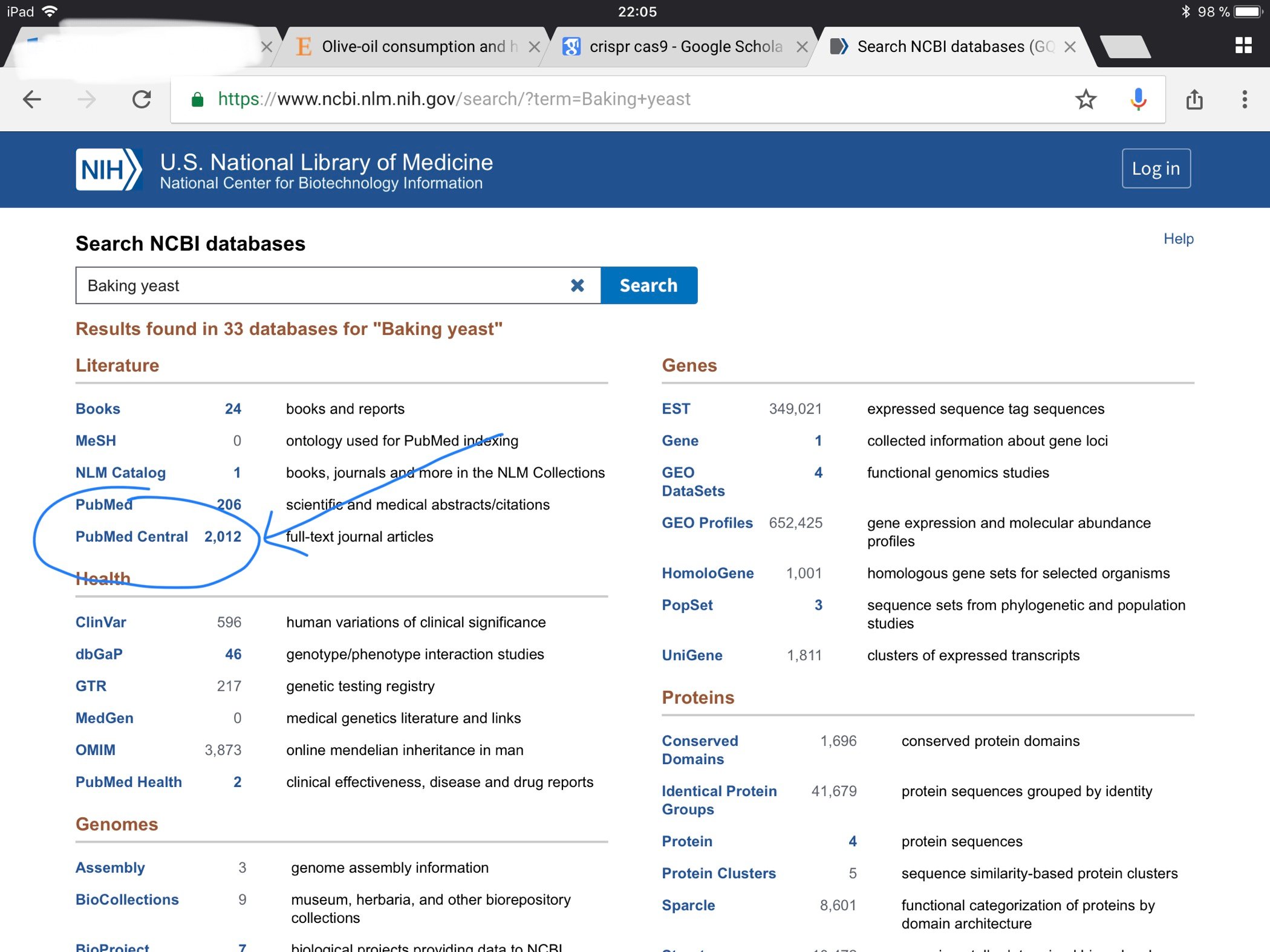
If you click on this you will be directed to a search results page with links to thousands of articles that were matched to your search. In this case, I got 2012 hits. If you click on PubMed Central you will get to the following page.
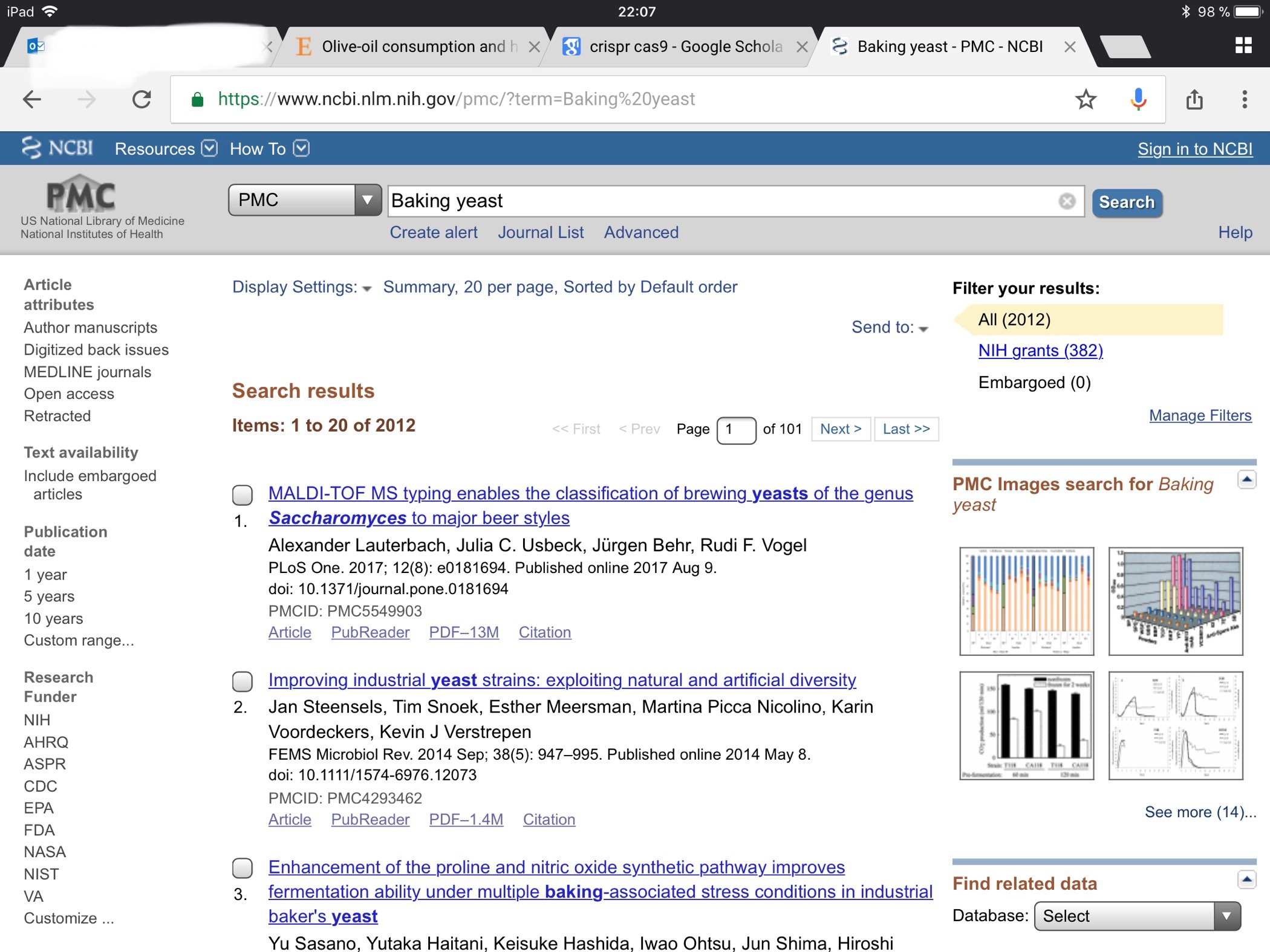
On the left hand side you see a few search filters, like year of publication, funding source and article attributes. I have not yet found an illegitimate article. However, we have the same major limitations that we have with Google Scholar: the amount of free sources. Many of the articles you will be interested in are not open source. However, this does not mean that you cannot use NCBI. You will find useful sources, but it will take you a little bit longer.
#3 C&EN
Google search “C EN” and you will find a results titled “C&EN | Chemistry News From Around The World”. Click on that link and you will get to the (C&EN homepage](https://cen.acs.org/index.html). C&EN stands for Chemistry and Engineering News and that is what this website is all about. While it does not give you a list of research articles, it rather gives you an overview over various news from the world of chemical research and chemistry in general.
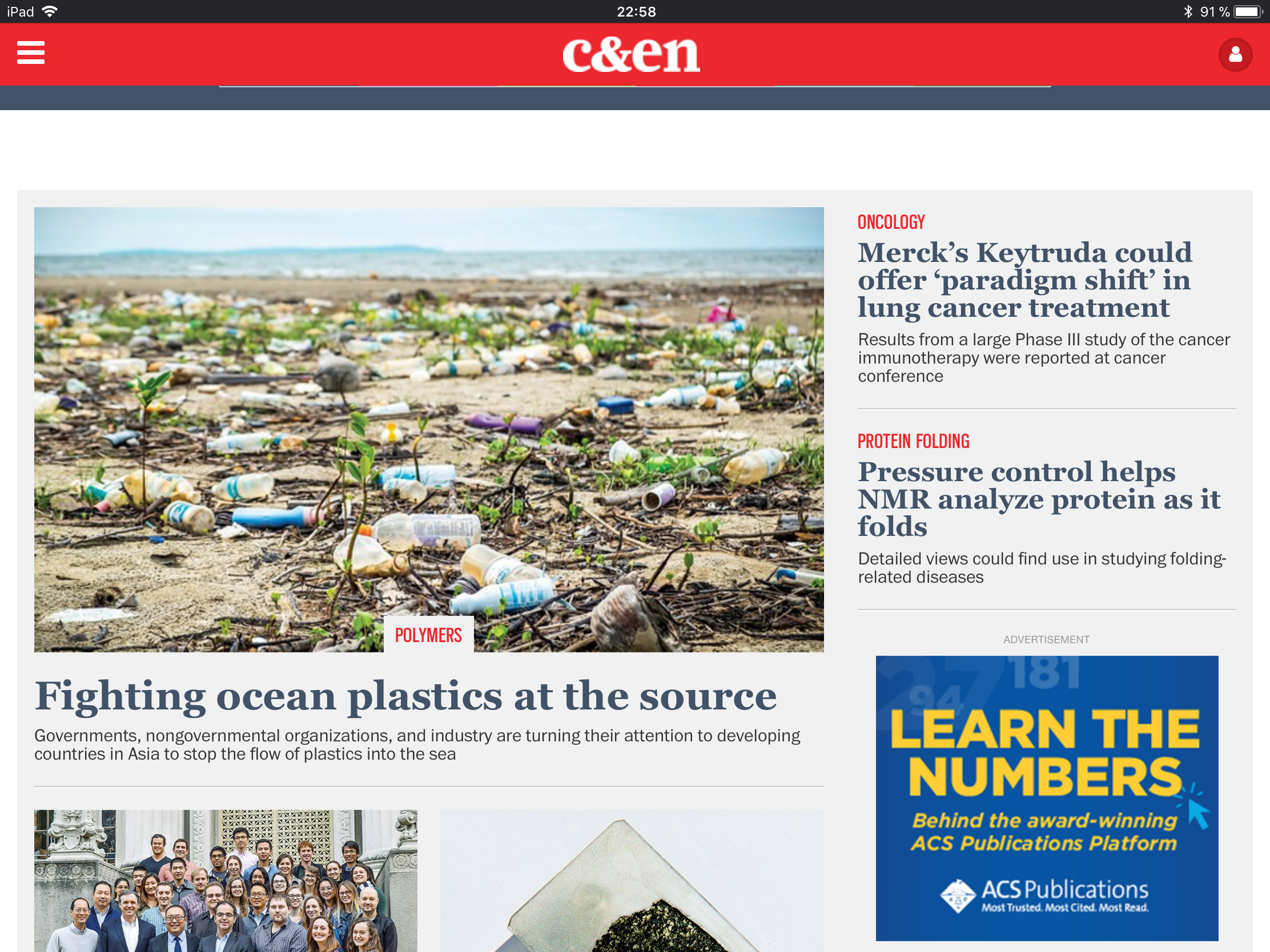
I would recommend this website if you have problems finding an idea for your next stem post and if you have not found a good one under the #nsas. On this website you can find free videos, short posts and podcasts. It is not very technical and you will be able to understand almost anything if you are curious about science. Citing C&EN posts is legitimate for stemit, but it is not acceptable in a research environment (i.e. if you write a grant proposal or if you are writing a journal article).
#4 Nature Communications
This is my personal new favorite website. Nature Communications is a sub-journal of Nature, one of the three most impactful journals. This website gives you access to many Nature style articles. It works like most search engines: you enter in what you are interested in in the search field and hit enter. If you are not 100% sure what you are looking for you can just browse by subject, something I have been doing a lot lately.
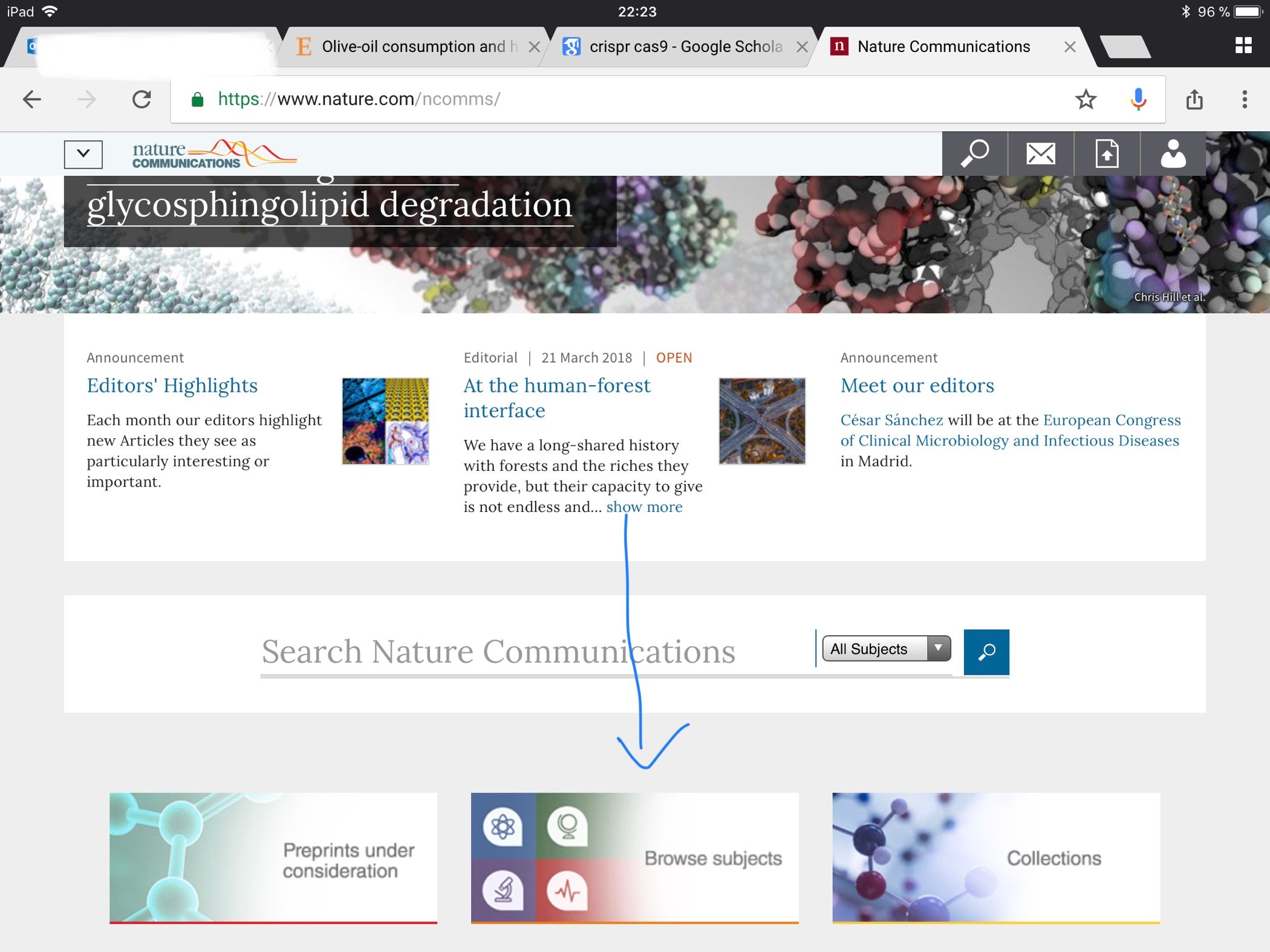
Here you can select an area that is of interest to you. When you click on a theme that is of interest to you, you will be directed to a list of articles that fall under this category. Almost all of these articles are free. This “discovery” has changed my life. But I am just a very nerdy person. For you, this will give you access to free articles that are published in one of the top three scientific journals.
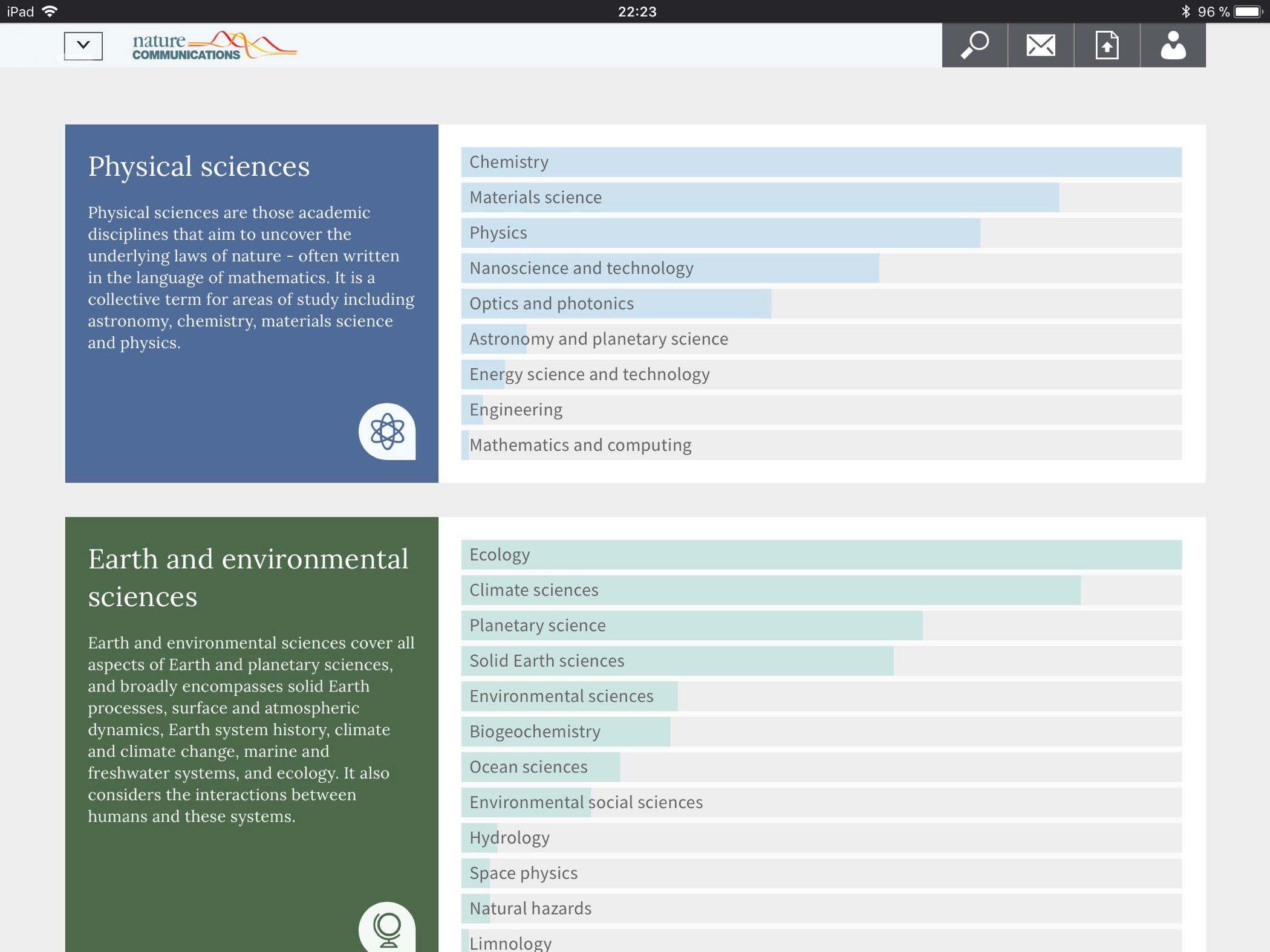
These are the four main sources that you can use to find scientific articles for your stem posts. There are many more out there, but access to these are often through an academic or research institution. One that I heavily use is “ACS Web Editions”. The ACS is the American Chemical Society. It is THE journal for chemical sciences. Anther one that is very powerful is SciFinder. I have access to it through my university.
#5 Science Direct
Science Direct is another science search engine. Unlike most of the above suggestions, it gives you the option to search specifically for open-access sources. It will give you a very long list with open access journals. Some of the journals are better than others. These open-access journals, sometimes charge authors to publish them. There is a bit of a difference in quality among these journals. However, this can still be a valuable source if you know what you are looking for.
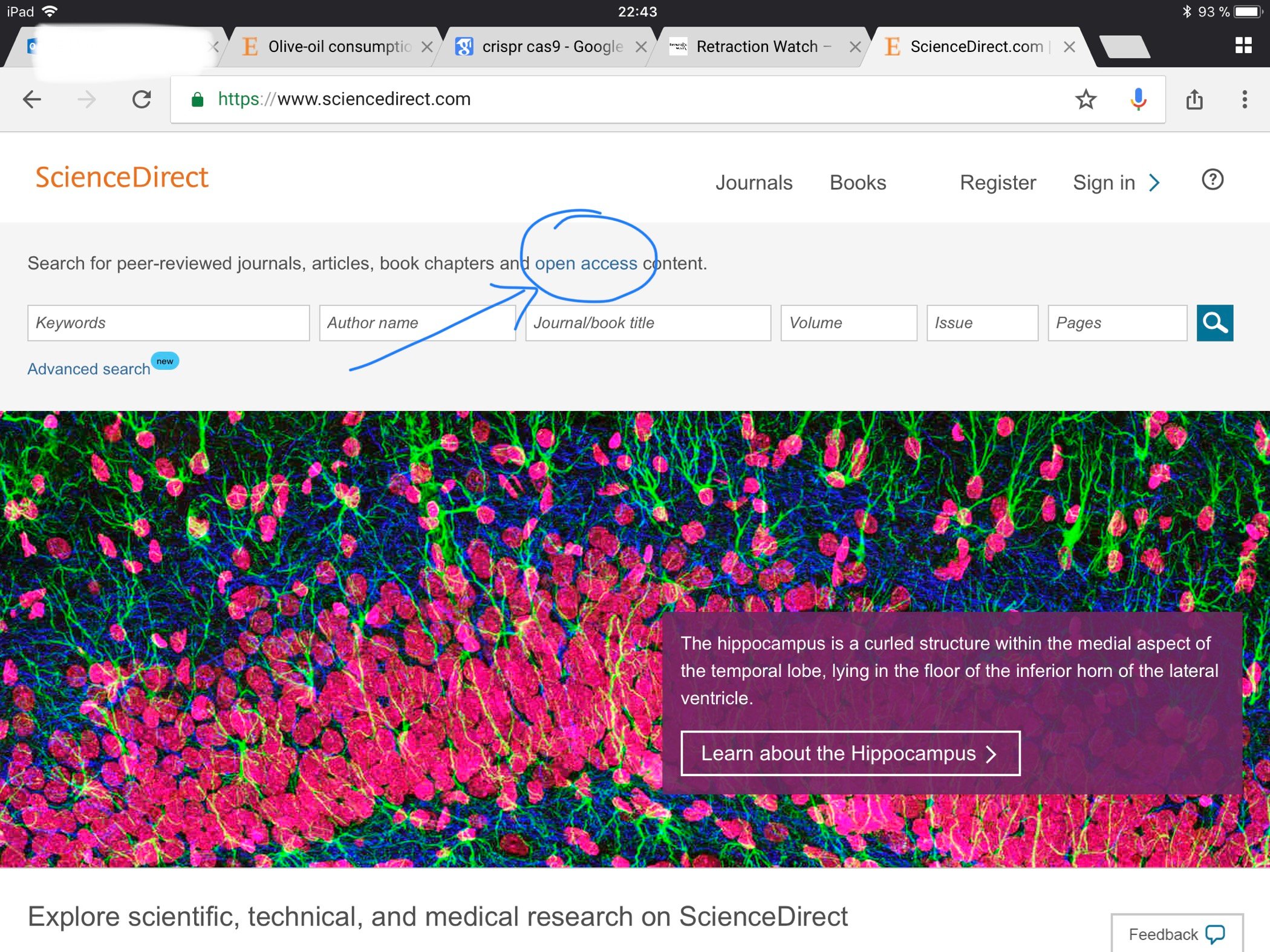
A Word On Wikipedia
Generally, Wikipedia is a good starting source. I know that the steemstem curators do not mind the use of Wikipedia and that using Wikipedia as a source will not prevent you from receiving a stem upvote. Personally, I only use Wikipedia if I encounter something that I do not understand, and I know many professors at my university are doing that, too.
I guess using Wikipedia really is your own decision. Your articles will be more legitimate if you use any of the sources I recommend above. But nobody in the stem community will be against you for citing Wikipedia.
Bonus Source
This is not a scientific source, but it is interesting nonetheless. Retraction Watch is an organization that tracks spectacular retractions and gives background information about what happened. Science is not holy, there are some shady things going on. Retraction Watch sheds some light on some creepy scientists and their wrongdoings.
For people who are not in science: a retraction is when a paper is “unpublished”. This usually happens when scientists discover that the data is not reproducible, or when data or figures have been copied or if there are ethical problems or non disclosed conflicts of interest. This is one of the mechanisms that ensures that the scientific principle is being followed. While it does not provide you with sources for your post (unless you write about the “dark site of science”), it still is an entertaining read.
I hope this post proves to be helpful for some people. If you still have problems finding adequate sources, contact me. I am a steemstem mentor and you can find me on Discord.
I am only human, and only a chemist, so my knowledge of finding sources is obviously limited to my area of research. If one of you from the other sciences know of other websites please share them in the comments!
As always,
Cheers @lesshorrible!
